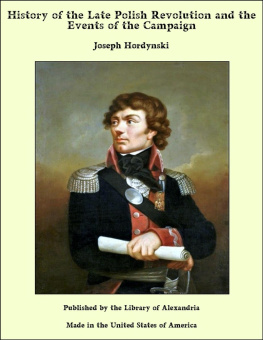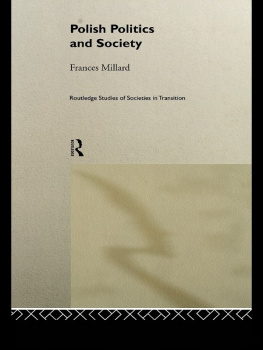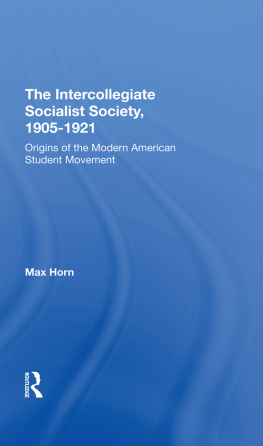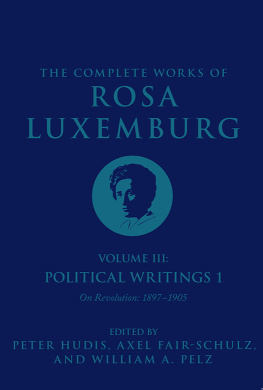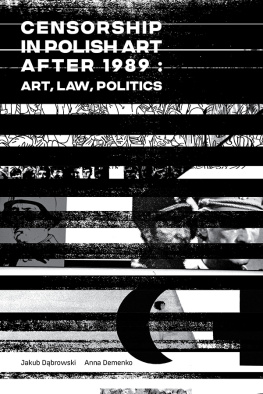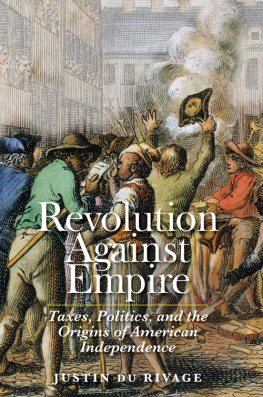Wiktor Marzec - Rising subjects : the 1905 revolution and the origins of modern Polish politics
Here you can read online Wiktor Marzec - Rising subjects : the 1905 revolution and the origins of modern Polish politics full text of the book (entire story) in english for free. Download pdf and epub, get meaning, cover and reviews about this ebook. year: 2020, publisher: University of Pittsburgh Press, genre: Politics. Description of the work, (preface) as well as reviews are available. Best literature library LitArk.com created for fans of good reading and offers a wide selection of genres:
Romance novel
Science fiction
Adventure
Detective
Science
History
Home and family
Prose
Art
Politics
Computer
Non-fiction
Religion
Business
Children
Humor
Choose a favorite category and find really read worthwhile books. Enjoy immersion in the world of imagination, feel the emotions of the characters or learn something new for yourself, make an fascinating discovery.

- Book:Rising subjects : the 1905 revolution and the origins of modern Polish politics
- Author:
- Publisher:University of Pittsburgh Press
- Genre:
- Year:2020
- Rating:3 / 5
- Favourites:Add to favourites
- Your mark:
- 60
- 1
- 2
- 3
- 4
- 5
Rising subjects : the 1905 revolution and the origins of modern Polish politics: summary, description and annotation
We offer to read an annotation, description, summary or preface (depends on what the author of the book "Rising subjects : the 1905 revolution and the origins of modern Polish politics" wrote himself). If you haven't found the necessary information about the book — write in the comments, we will try to find it.
Wiktor Marzec: author's other books
Who wrote Rising subjects : the 1905 revolution and the origins of modern Polish politics? Find out the surname, the name of the author of the book and a list of all author's works by series.
Rising subjects : the 1905 revolution and the origins of modern Polish politics — read online for free the complete book (whole text) full work
Below is the text of the book, divided by pages. System saving the place of the last page read, allows you to conveniently read the book "Rising subjects : the 1905 revolution and the origins of modern Polish politics" online for free, without having to search again every time where you left off. Put a bookmark, and you can go to the page where you finished reading at any time.
Font size:
Interval:
Bookmark:

Copyright 2020, University of Pittsburgh Press
All rights reserved
Manufactured in the United States of America
Printed on acid-free paper
10 9 8 7 6 5 4 3 2 1
ISBN 10: 0-8229-4612-2
Cover design: Alex Wolfe
| CKR | Centralny Komitet Robotniczy (Central Workers Committee) |
| KPP | Komunistyczna Partia Polski (Polish Communist Party) |
| KR | Komitet Robotniczy (Workers Committee) |
| KR | dzki Komitet Robotniczy (Lodz Workers Committee) |
| ND | Narodowa Demokracja (National Democracy) |
| NZR | Narodowy Zwizek Robotniczy (National Workers Association) |
| OKR | Okrgowy Komitet Robotniczy (Regional Workers Commitee) |
| PD | Postpowa Demokracja (Progressive Democracy) |
| PPS | Polska Partia Socjalistyczna (Polish Socialist Party) |
| PPS-Left | Polska Partia Socjalistyczna Lewica (Polish Socialist Party-Left) |
Font size:
Interval:
Bookmark:
Similar books «Rising subjects : the 1905 revolution and the origins of modern Polish politics»
Look at similar books to Rising subjects : the 1905 revolution and the origins of modern Polish politics. We have selected literature similar in name and meaning in the hope of providing readers with more options to find new, interesting, not yet read works.
Discussion, reviews of the book Rising subjects : the 1905 revolution and the origins of modern Polish politics and just readers' own opinions. Leave your comments, write what you think about the work, its meaning or the main characters. Specify what exactly you liked and what you didn't like, and why you think so.

